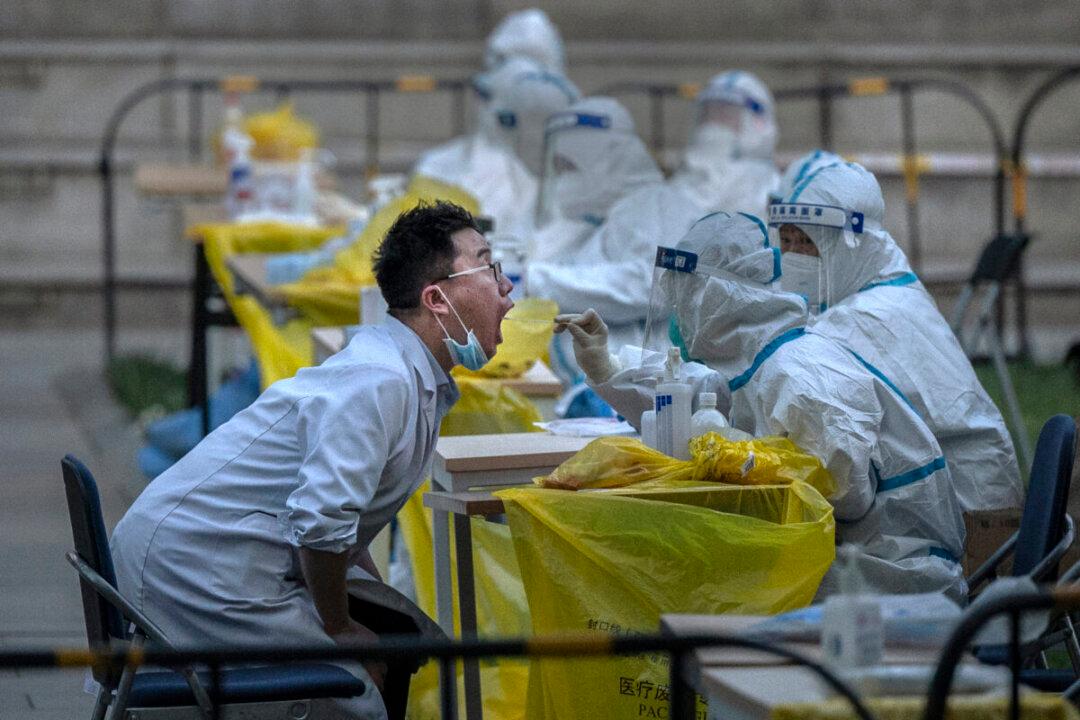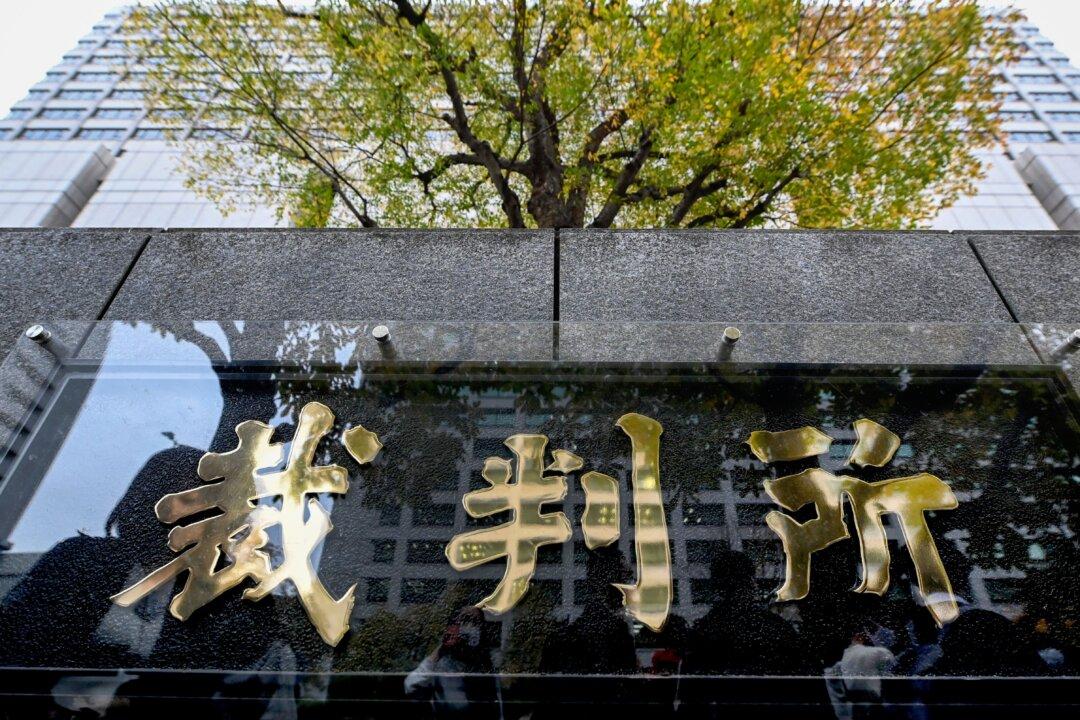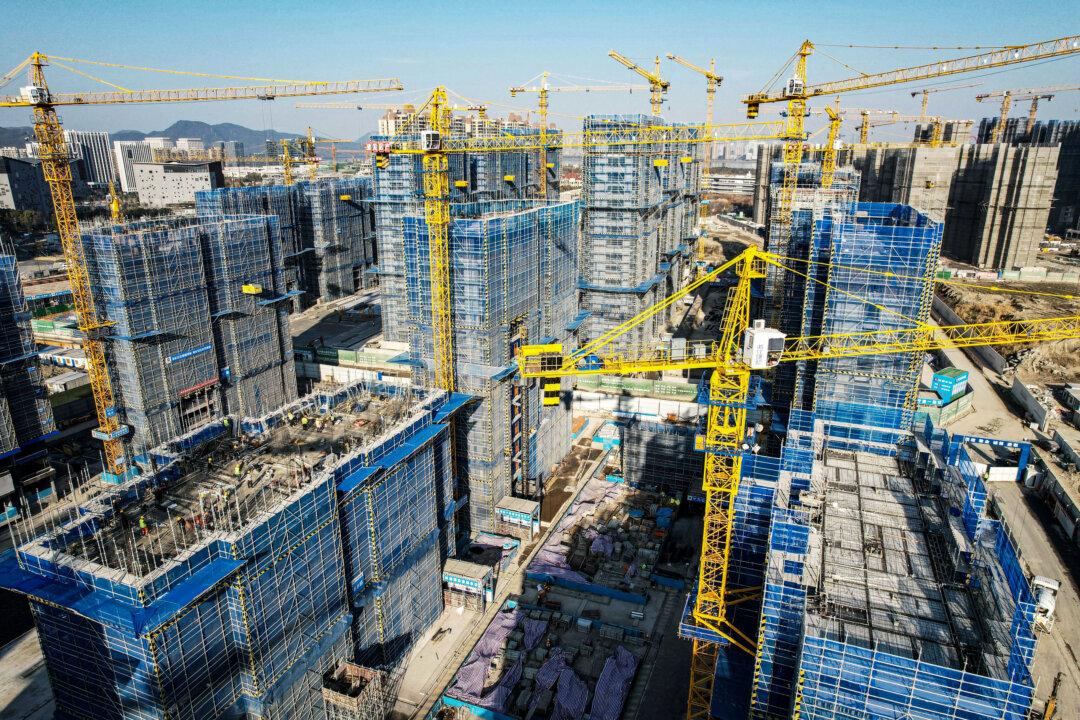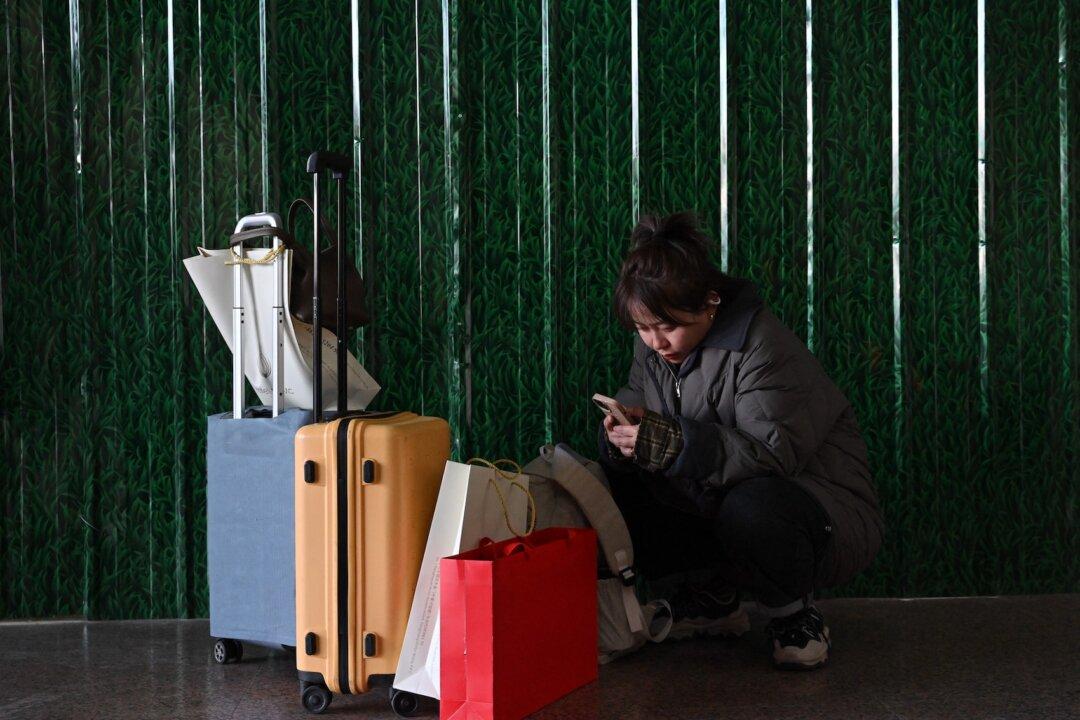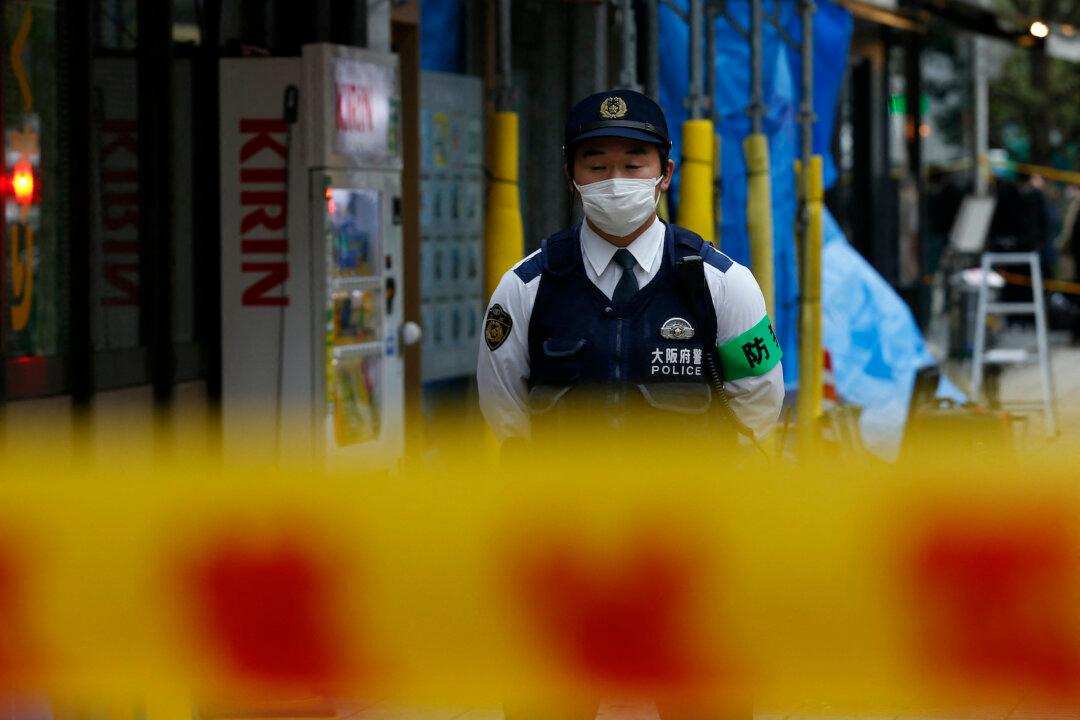Authorities have commenced mass testing affecting at least half of the residents in China’s capital city of Beijing, a possible signal to accelerate its zero-COVID containment pace and lockdown like Shanghai. Local residents are scrambling to hoard food and supplies in fear of starving during the impending lockdown.
The epidemic situation in Beijing is “serious and complex,” staging “at a critical point,” said the municipal epidemic prevention and control office on April 25, announcing that in just three days, from April 22 -25, the COVID-19 virus expanded from the Shunyi and Chaoyang districts to the Fangshan, Changping, Fengtai, Xicheng, Yanqing, and Tongzhou districts, covering half of Beijing.
